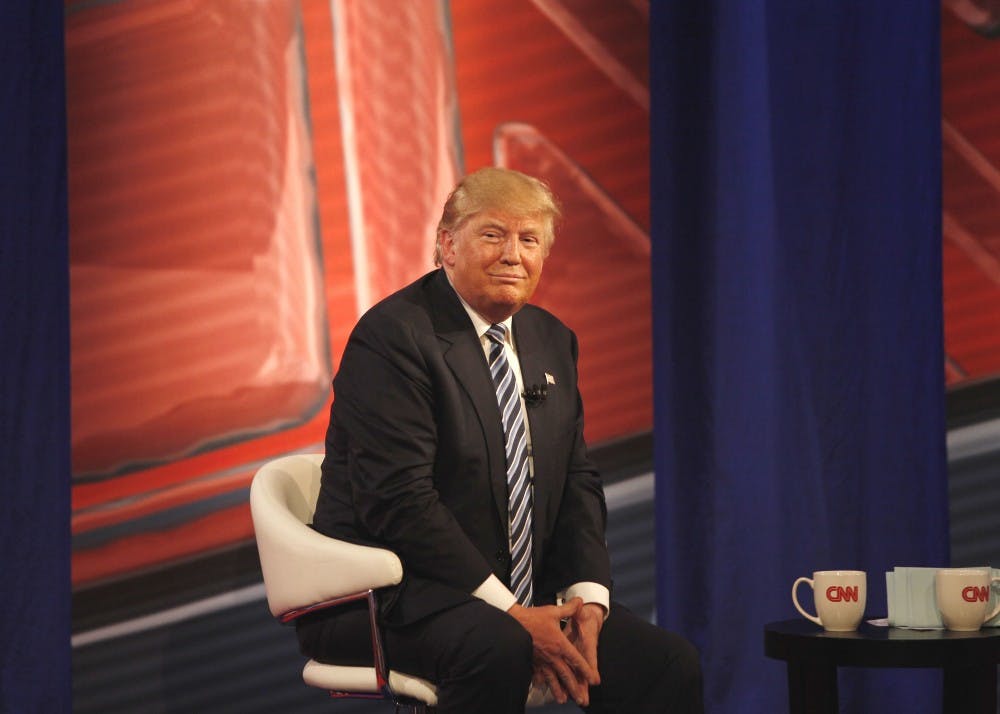This week's campaigning for the Republican presidential nomination has been the most heated yet, and has sometimes devolved into a shouting match. But it has also thrown the choice voters South Carolina will have this weekend into sharp relief.
In today’s Republican Party, one must prove that they are bona fide conservatives in the presidential primary to receive the nomination. But with so many candidates still left in this cycle, the challenge becomes differentiating oneself from the competitors. That distinction has finally crystallized around one question: What type of conservative are you?
Retired neurosurgeon Ben Carson has chosen to present himself through the lens of religious conservatism. After all, he rose to political fame after his tirade against President Obama at the 2013 National Prayer Breakfast. His rags to riches life story and redemption from a violent youth have been central to his worldview on both politics and religion, and he has frequently sought to make the rebuilding of morality and spirituality in society a key part of his campaign.
But in a race where Ted Cruz, Donald Trump and now even Marco Rubio have made strong appeals to very religious voters, Carson has struggled to capture the hearts and minds of enough values voters and has subsequently struggled. He has banked on a good performance in South Carolina, whose Republican voters should be receptive to his style.
Ohio Gov. John Kasich has taken a different tact, running as a compassionate conservative. It’s the brand that George W. Bush used to get himself elected to the White House and centers on the notion that conservative political philosophies can lead to greater prosperity for all members of society. Conservatism has long been attacked as unsympathetic to the poor and vulnerable with its emphasis on vigorous capitalism.
Kasich seeks to convince Republican voters he can win in November with this message that a rising economic tide (led by him, of course) will lift all boats. It remains to be seen how effectively Kasich can campaign with this theme.
Former Florida Gov. Jeb Bush has presented himself as a neoconservative in much the same vein as his brother, George W. Bush. Despite his insistence that he is his own man, his reliance on his brother’s foreign policy team, his campaign’s emphasis on national security and his adamant stance that the United States must maintain its position as leader of the free world make his platform reminiscent of both his brother’s campaign in 2004 and his father’s in 1992.
Perhaps to emphasize this point, George W. Bush has campaigned for his brother here in South Carolina. The former president remains a divisive figure nationally, but he still has a lot of support in this state — something Donald Trump found out on Saturday night as Jeb defended his family’s honor while the debate audience cheered.
Meanwhile, Florida Sen. Marco Rubio is running as an electable conservative. Rather than put a stake in the ground of a host of issues, he has made electability his main argument for garnering the nomination. He casts himself as the new face of the Republican Party for a new generation of less ideological, more practical Republicans.
The problem is, by not wedding himself to a particular constituency in the party, he has been left out in the cold after his disastrous debate performance in New Hampshire. Rubio needs a solid performance in South Carolina to convince enough voters that he is a viable, electable choice.
Texas Sen. Ted Cruz has sold himself as an ideological conservative and someone who stands firm for principles even in the face of overwhelming opposition. He argues that moderate nominees John McCain and Mitt Romney have cost the party elections in the previous two cycles and he is the warrior to lead a moral majority into battle in November.
Cruz’s hard-right politics will play well here in the deep red South, but his campaign will have to shift once the rest of the country begins voting in the primary. For now, he stayed the course Saturday at the debate by attacking his chief rival, Donald Trump, for not sharing his commitment to the cause.
And that brings us to the main elephant in the room and the current South Carolina front-runner — billionaire businessman Donald Trump. Saturday night was the launch of a new branding for Trump as a "common-sense conservative." He cast the George W. Bush presidency as a failure and seems convinced that his convictions, not the Republican Party’s ideals, should be the guiding platform moving forward.
If Trump wins in South Carolina, it will be more validation that his newer brand of conservatism — less ideological, more populist and driven by personality rather than policy — is what members of the Republican Party want.
But voters also have five other flavors to choose from, and anything can happen in politics.

